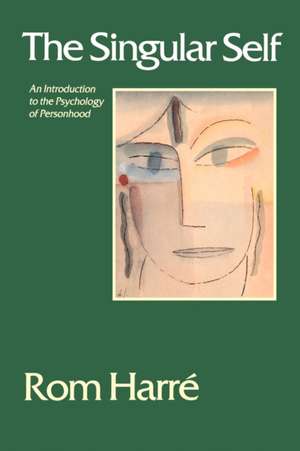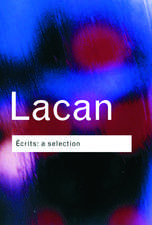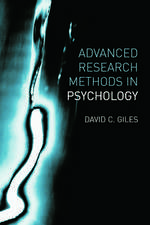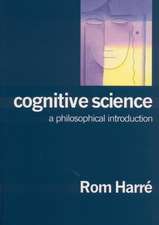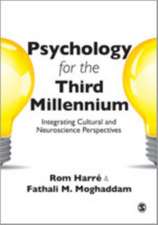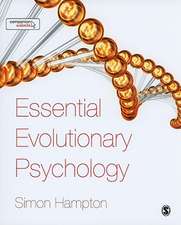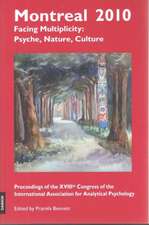The Singular Self: An Introduction to the Psychology of Personhood
Autor Rom Harreen Limba Engleză Paperback – 11 dec 1997
This landmark work draws on material from psychology, philosophy, anthropology and linguistics to develop a hierarchical and structured concept of personhood. Rom Harr[ac]e shows that despite the centrality of our social and cultural identities, the self must ultimately be understood as autonomous, distinct and continuous - as a shifting but unified pattern of multiplicities and singularities.
This masterly analysis offers an opportunity to develop a truly scientific account of personhood. By charting a path across the psychological landscape that acknowledges both the symbolic and the physiological aspects of our being, from language to biology, Harr[ac]e maps the terrain of what it is to be a person in the context of discursive psychology.
Preț: 461.18 lei
Preț vechi: 542.57 lei
-15% Nou
Puncte Express: 692
Preț estimativ în valută:
88.24€ • 92.47$ • 72.95£
88.24€ • 92.47$ • 72.95£
Carte tipărită la comandă
Livrare economică 11-25 aprilie
Preluare comenzi: 021 569.72.76
Specificații
ISBN-13: 9780761957393
ISBN-10: 0761957391
Pagini: 208
Dimensiuni: 156 x 234 x 11 mm
Greutate: 0.3 kg
Ediția:1
Editura: SAGE Publications
Colecția Sage Publications Ltd
Locul publicării:London, United Kingdom
ISBN-10: 0761957391
Pagini: 208
Dimensiuni: 156 x 234 x 11 mm
Greutate: 0.3 kg
Ediția:1
Editura: SAGE Publications
Colecția Sage Publications Ltd
Locul publicării:London, United Kingdom
Recenzii
`Harr[ac]e draws on psychology, philosophy, anthropology, and linguistics to develop an intellectually rigorous and integrative understanding of selfhood as a unitas multiplex - a diversity in unity. The breadth of Harre[ac]e's scholarship and the rigor which he evaluates various conceptual positions are awe-inspiring. Harr[ac]e's keen insights and erudite arguments about selfhood help to clear a space for an intellectually rigorous psychology of persons. Although many readers will find this a very challenging book, Harr[ac]e bills his text as An Introduction to the Psychology of Personhood. He is laying out some of the basic concepts that must be invoked if one is to develop a credible science of persons.... In conclusion, Harr[ac]e's brilliant exegesis of the grammar underlying self-talk provides a philosophical clearing within which a sophisticated and generative science of persons may be allowed to take place' - Contemporary Psychology
`A technical work drawing on psychology, philosophy, anthropology and linguistics that develops a structured concept of personhood. Acknowledges the symbolic and physiological aspects of our being and aruges for a singular concept of the self fesdipit varying contexts. Does not stray into transpersonal or subpersiaonlity realms' - Scientific & Medical Network
`Rom Harr[ac]e has been one of the most creative and ambitious thinkers in the development of modern psychology. Here he returns to the territory of his excellent Personal Being (1983) to give a challenging and up-to-date discussion of selfhood, agency and identity. His distinctive contribution combines a philosophically sophisticated understanding of self-talk with a huge sweep of scholarship across the social and human sciences to provide an account of what the self is, emphasizing that persons are socially situated moral agents. Always accessible and readable, the book brims with engaging examples.
Harr[ac]e's work takes up and develops his longstanding critique of traditional personality theory in psychology as well countering newer social cognition approaches to self-understanding. At the same time, while emphasizing the central role of discourse in understanding personhood, Harr[ac]e provides a challenge to both postmodernist dissolutions of self and psychoanalytic reductions to unconscious signifiers.
At a time when, even at the cutting edge of new thinking in psychology, there are calls for a theory of the subject to be placed at the centre of psychology, Harr[ac]e provides an important service by setting out what might be involved in such a theory as well as emphasizing some of the confusions that this way of thinking can lead to' - Jonathan Potter, Loughborough University
`A fascinating journey through varying landscapes in psychology, philosophy, anthropology, linguistics and literary studies... the book represents an audacious effort to redress the ambiguities of the word "self" in contemporary psychology... In The Singular Self, Harr[ac]e expresses both an astonishing capacity for analyzing psychological phenomena, and gives many illustrative examples from everyday life which makes the book fun to read' - Hubert J M Hermans, Catholic University Nijmegen
`A technical work drawing on psychology, philosophy, anthropology and linguistics that develops a structured concept of personhood. Acknowledges the symbolic and physiological aspects of our being and aruges for a singular concept of the self fesdipit varying contexts. Does not stray into transpersonal or subpersiaonlity realms' - Scientific & Medical Network
`Rom Harr[ac]e has been one of the most creative and ambitious thinkers in the development of modern psychology. Here he returns to the territory of his excellent Personal Being (1983) to give a challenging and up-to-date discussion of selfhood, agency and identity. His distinctive contribution combines a philosophically sophisticated understanding of self-talk with a huge sweep of scholarship across the social and human sciences to provide an account of what the self is, emphasizing that persons are socially situated moral agents. Always accessible and readable, the book brims with engaging examples.
Harr[ac]e's work takes up and develops his longstanding critique of traditional personality theory in psychology as well countering newer social cognition approaches to self-understanding. At the same time, while emphasizing the central role of discourse in understanding personhood, Harr[ac]e provides a challenge to both postmodernist dissolutions of self and psychoanalytic reductions to unconscious signifiers.
At a time when, even at the cutting edge of new thinking in psychology, there are calls for a theory of the subject to be placed at the centre of psychology, Harr[ac]e provides an important service by setting out what might be involved in such a theory as well as emphasizing some of the confusions that this way of thinking can lead to' - Jonathan Potter, Loughborough University
`A fascinating journey through varying landscapes in psychology, philosophy, anthropology, linguistics and literary studies... the book represents an audacious effort to redress the ambiguities of the word "self" in contemporary psychology... In The Singular Self, Harr[ac]e expresses both an astonishing capacity for analyzing psychological phenomena, and gives many illustrative examples from everyday life which makes the book fun to read' - Hubert J M Hermans, Catholic University Nijmegen
Cuprins
On Being a Person
Problems of Self
Which Psychology? The Turn to Discourse
Which Grammar? Indexicals and Names
Persons and Selves
A Surview of Some Current Concepts
The Self in Perception and Action
The Self in Reflection and Recollection
Diversities and Multiplicities of Self
Problems of Self
Which Psychology? The Turn to Discourse
Which Grammar? Indexicals and Names
Persons and Selves
A Surview of Some Current Concepts
The Self in Perception and Action
The Self in Reflection and Recollection
Diversities and Multiplicities of Self
Notă biografică
Rom Harré is a Fellow of Linacre College, Oxford and Professor of Psychology at Georgetown University, Washington, DC
Descriere
Rom Harr[ac]e's profound reappraisal of the many-sided concept of self shows that despite the centrality of our social and cultural identities, the self must ultimately be understood as autonomous, distinct and continuous - as a shifting but unified pattern of multiplicities and singularities. By acknowledging both the symbolic and the physiological aspects of our being, from language to biology, Harr[ac]e maps the terrain of what it is to be a person in the context of discursive psychology.
